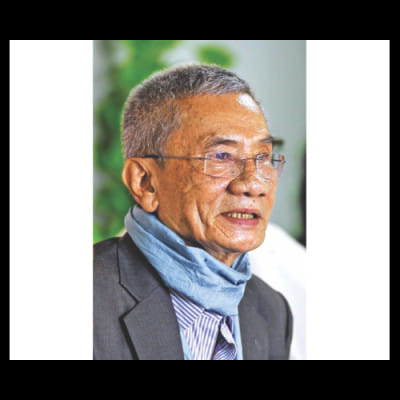Declare road map or face movement

The government will face a non-cooperation movement by Parbatya Chattagram Jana Samhati Samiti if it does not formulate a time-bound plan before the year ends to implement the Chittagong Hill Tracts accord, says the PCJSS president.
The signing of the peace accord reached its 18th year yesterday but only 25 provisions out of 72 of the agreement have been implemented over the years as claimed by PCJSS leaders at a rally organised in Rangamati to mark the occasion.
The government alone will be responsible for any undesirable situation in the hills if it tries to suppress the democratic movement of Jumma people instead of taking effective and visible measures for full implementation of the accord, said Jyotirindra Bodhipriya Larma, also known as Santu Larma, president of PCJSS that had signed the accord with the government.
Addressing the gathering, Santu Larma, also chairman of the CHT Regional Council, added that Jumma people were determined and would even sacrifice their lives, if needed, to protect their national entities and territories.
“They [Jumma people] want to live as proud citizens of this country with their national identity, fundamental rights and self-dignity.”
That is what they re-asserted through the accord signing, the PCJSS leader said, adding Jumma people wanted to live on their land with their own identity and uniqueness.
PCJSS expects that the government will demonstrate political wisdom in comprehending rightfully the reality of the CHT, Santu Larma said.
Fazle Hasan Badshah, MP, and leader of the Workers Party of Bangladesh, said radical groups were active in the hilly region as the accord was yet to be implemented fully.
PCJSS reiterated its warning at programmes in Rangamati and Bandarban yesterday.
Thousands of indigenous people gathered in Gymnasium area of Rangamati and Puraton Rajar Math, Bandarban to press home their demands.
Speakers said only 25 provisions of the accord had been implemented, as opposed to the government's claim of implementing 48 provisions of the agreement.
Despite reaching a consensus on the land issue, the government's dilly-dallying in bringing amendments to the CHT Land Dispute Resolution Commission Act is a manifestation of its lack of political will and sincerity in resolving the CHT crisis, they said.
Jumma people are being evicted from their ancestral lands and homesteads.
In the name of development and with the pledge to implement the accord, the local administration are carrying out anti-Jumma-interest programmes like establishing a science and technology university and a medical college in Rangamati, opening up tourism centres, expanding reserve forest, setting up new security camps and leasing out lands to outsiders, PCJSS leaders said.
They urged the government to take effective steps to resolve the unattended issues of the accord.
The authorities should give priorities to the devolution of power to the CHT Regional Council and three hill district councils, withdrawal of all temporary camps, including “Operation Uttoron” that legitimised military domination over the civil administration and resolution of land disputes by amending the CHT land commission act.
Jumma refugees and those internally displaced should also be rehabilitated and laws and regulations concerned, including CHT Regulation 1900 and Bangladesh Police Act, implemented.
The speakers at the programmes also urged the government to postpone all activities of Rangamati Science and Technology University and the medical college until proper and full implementation of the peace accord.

 For all latest news, follow The Daily Star's Google News channel.
For all latest news, follow The Daily Star's Google News channel. 



Comments